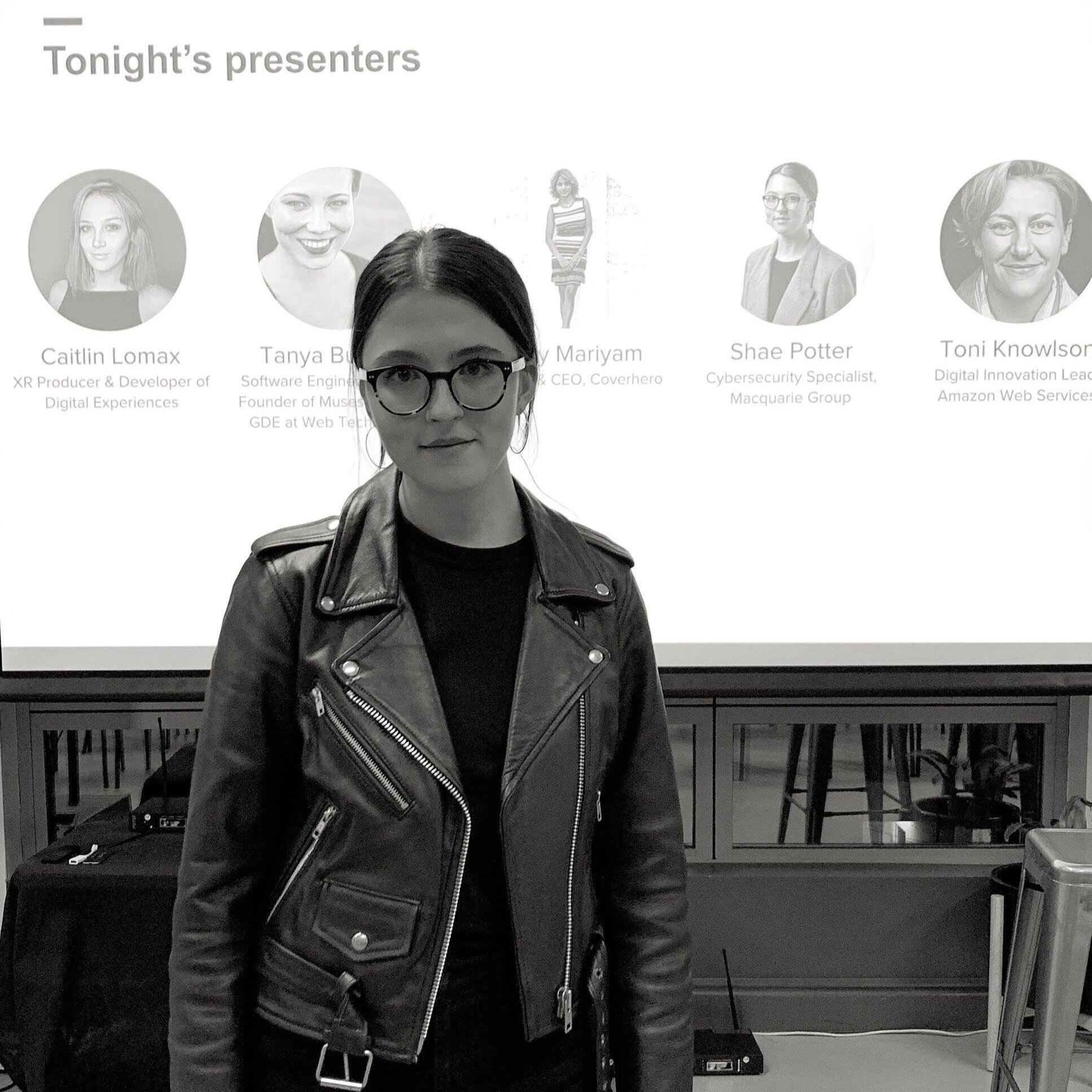Shae Potter is a remarkable young woman who is building a critical and fulfilling career as a Cyber Security Specialist in the Financial Services Industry. Newly appointed as the Regional Lead for ANZ Cyber Security Awareness, Shae is making an incredible impact on Australia’s financial services industry by protecting it against cyber crime - something that all too often exists in the technology age.
GUEST BLOG BY SHAE POTTER
“The perception of cyber security is very “edgelordy” - that it’s all hackers in hoodies with some sort of Matrix-style green binary code raining down their laptop screens. The reality is pretty different. I can’t even code - and I much prefer pink fonts anyway :)”
”I’m Shae, and I’m an interdisciplinary cyber security professional in the financial services industry.
This blog piece will tell you the weird way I got here, and how you can, too. (And to confess, I’ve never seen The Matrix. Whoops).
…That makes more sense when I say that I come from a non-technical background. I studied a Bachelor of Political, Economic and Social Sciences at the University of Sydney, majoring in Government and International Relations.
My interest in this field of study is complicated and emotional.
I had just turned four years old when the 9/11 terrorist attack happened, and the earliest memory I can recall is staring, in a fixated, morbid way, at the news coverage on the television.
I grew up in the shadow of the ‘war on terror’, where racist, divisive rhetoric was legitimised to perversely worship an effort to protect ‘us’ from the ‘other’. Of course, the world is far more nuanced. In November 2015, the news broke of a coordinated terrorist attack in France where many had died. A dear friend of mine was living in Paris at the time, and I recall being disheartened and very, very, pissed off.
So, I wanted to do something about it.
In my degree, I focused pretty heavily on counter-terrorism studies, linking up with geopolitical, sociological, economic and political philosophy concepts. (I challenge you to find anything further away from STEM than studying about the political philosophy of the French Revolution).
But, as my studies developed, it was clear that a nexus existed between terrorist tactics and cyber space.
I knew that I didn’t want to relocate to Canberra to work for the government - despite the lockout laws, in 2017 I deeply appreciated breathtakingly decadent lurid nights out and following the street art scene. What actually cinched it for me was that I didn’t have a driver’s licence, and you actually need one of those for most intelligence roles. So I figured I should try my hand at a cyber security job.
Navigating the transition from university to the corporate world
With my degree and some free online cyber certificates in hand, I sat down to apply for graduate programs. Unfortunately nobody let me in on the crucial detail that you had to apply a year in advance (What the heck!!!)
I had flashbacks of my night shift uni job and nearly threw up at the prospect of working there another year while my grad role was processed.
So I did what any desperate 20-year-old needing a corporate career in a field they had zero experience in, did: I created a LinkedIn profile!
I then searched the keyword ‘cyber’ and bulk connection requested everyone fitting that description. And I wrote a few pithy statuses about needing a ‘foot in the door’. To my surprise, many people responded.
What I love about the cyber security industry is the generous community of professionals who are eager to give you a helping hand. Now that I’ve been in the industry for nearly three years, I have appreciated the support of many organisations, like Girledworld, that amplify opportunities for women and young folk.
Another great aspect of cyber security is that everyone is continuously learning, so you can enter the field with no knowledge, like I did, and get up to speed fairly quickly. Because there’s always new attack vectors and vulnerabilities being exposed, it doesn’t matter if you’re 2 months or 20 years into cyber, nobody can ‘master’ it and know it all. The main thing is you certainly don’t need a degree in computer science - you just need a good attitude and an eagerness to do well.
My tips for entering a career in cyber security/technology:
For those starting out:
Study what genuinely interests you
I guarantee this area will intersect with technology in the future. It is much easier to spend 4 hours a day studying something you enjoy. Trust. Me.Attend career talks and panel events
There’s a bunch of free ones held all the time. Go to as many as you can. And ask lots of annoying questions!Speak to as many people as you can who are a couple of steps ahead in their careers
People ahead of you have likely only recently made the decisions you are about to make, and understanding their journey is useful to orient you and your decisions.
For those in their mid-career:
Leverage the skills you already have to make a lateral move into cyber security
Cyber teams need project managers, educators, comms writers, lawyers, risk specialists, stakeholder managers and so on. Find these roles in a tech company or a cyber team. Once you’re in there, you can find technical people within the company to speak to about growing into a more technical role.Curate your LinkedIn profile
Make sure you dedicate time do your research and scatter important keywords through it so you can connect with the right sort of cyber folk.Utilise free online resources
There are many great free online short courses you can do in your own time. Commit to doing them, and leverage, leverage, leverage, baby!
Finally, I think It is absolutely crucial is that we have a diverse range of people working in cyber security and technology. Problems will be solved in a better and more dynamic way when there’s a representative intersectional mix at the table.
We interface with technology every day, so we need people who understand humans, too - ethicists, sociologists, political scientists, English literature majors and artists!”



